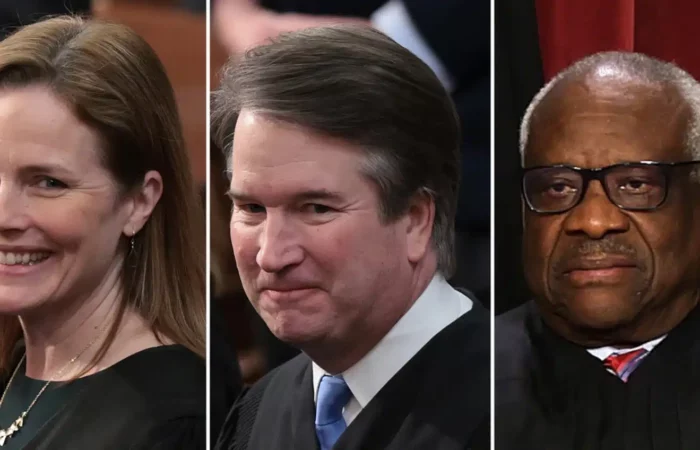Trump Asks Supreme Court To Block His Criminal ‘Hush Money’ Sentencing

President-elect Donald Trump has requested that the U.S. Supreme Court intervene to halt the sentencing scheduled for Friday in his New York criminal case concerning hush money. In a filing submitted on Wednesday morning, Trump’s legal team argued that proceeding with the sentencing would undermine “the institution of the Presidency and the operations of the federal government.” Trump has asserted that he is entitled to presidential immunity in an effort to dismiss the case.
His attorneys contended, “Most fundamentally, compelling President Trump to defend against a criminal case and attend a sentencing hearing during the critical period of the Presidential transition poses a constitutionally unacceptable risk to national security and the essential interests of the United States.”
The Supreme Court has requested a response from New York prosecutors by Thursday at 10 a.m. ET, as reported by ABC News.
Through their petition to the Supreme Court, Trump’s lawyers are seeking an unprecedented action from the nation’s highest court: to engage in the ongoing criminal proceedings of a former president. Their objective is to have the court overturn his conviction just weeks before he is set to be inaugurated, marking a significant moment for the court’s conservative majority.
This request follows Trump’s appeal to a New York appellate court on Tuesday, which sought to delay the sentencing originally scheduled for January 10; however, the court denied this request.
In May, Trump was convicted on 34 felony counts related to false statements about business records concerning a hush money payment made to adult film actress Stormy Daniels, aimed at enhancing his prospects in the 2016 presidential election.
Trump has petitioned the Supreme Court to consider three key issues: whether he is entitled to a stay of proceedings while pursuing an appeal; whether the concept of presidential immunity precludes the use of evidence pertaining to official actions; and whether a president-elect enjoys the same immunity as a sitting president.
Should the justices side with Trump, his assertion regarding the immunity of a president-elect could potentially augment presidential authority by temporarily granting a private citizen the same protections as an incumbent president. Trump’s legal team contends that the Constitution and the principle of “separation of powers” necessitate the conclusion that a president-elect is entirely immune from criminal prosecution.
In a 6-3 decision last year, the Supreme Court broadened the definition of presidential immunity, asserting that a former president is unlikely to face criminal charges for actions taken in an official capacity and is fully immune for activities related to his primary responsibilities. This ruling not only enhanced presidential power but also altered the nature of the criminal cases confronting Trump.
Despite the favorable ruling, it remains uncertain whether Trump can convince the justices to halt his sentencing. Generally, the Supreme Court refrains from addressing arbitrary interlocutory cases, even those presented by a president-elect.
The newly elected president faces a potential prison sentence of up to..




